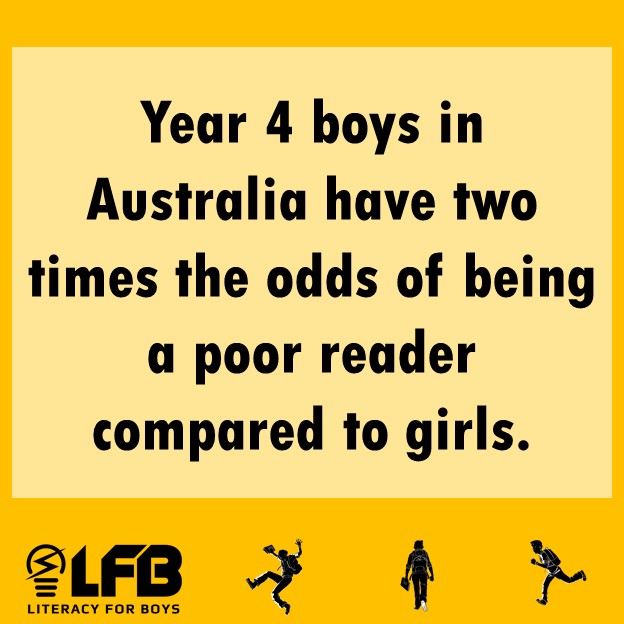The Problem with Boys Not Reading

Reading and literacy are fundamental to success in life. A 2006 UNESCO study summarised it well by saying “literacy skills are fundamental to informed decision-making, personal empowerment, and active participation in the community”. It’s important for an individual to not only read the words on a page but also engage successfully with the text.
The Problem with Boys Not Reading
Literacy skills are NOT just for reading
Literacy skills are also not limited to the English class. They are required in every school lesson and in all parts of life. Before boys can reach their potential in other areas such as science, music, art, mathematics and even sport they must first be able to read and understand. Dr Ian Lillico, founder and CEO of Boys Forward Institute says “Boys’ poor literacy levels are now impacting on all their subject offerings and desperate measures are needed to get them back to books, writing and oral communication”.
Boys need reading and literacy skills for their self-esteem
Numerous studies show that there is a link between a lack of literacy confidence and low self-esteem. The effects of falling behind in reading and feeling like a failure can take a large toll. Children can lose all desire to learn to read or go to school. Some begin to act out in class or set low expectations for themselves. In some instances, this can lead to a higher risk of issues such as anxiety, depression, anger and general poor self-esteem.

The gender gap in children’s literacy levels is universal
The research leaves absolutely no doubt that boys trail girls in literacy attainment. The Centre on Education Policy called this gap “the most pressing gender-gap issue facing our schools.” Research in Australia, UK, and the USA all show similar results and trends.
It starts from an early age
According to the Australian Early Development Census 2014 boys are more developmentally vulnerable than girls at school entry. Almost double the number of boys than girls are considered vulnerable in the area of language and cognitive skills.
Stated enjoyment of reading reduces with age
As they get older, boys increasingly describe themselves as non-readers. Few have this attitude early in their schooling. According to some experts, nearly 50 per cent describe themselves as non-readers by the time they enter secondary school. A longitudinal research study undertaken by the Australian Institute of Family Studies found that boys stated enjoyment of reading reduced at they got older. Starting at a significant 32% for 6-7 year olds, increasing to a disturbing 55% of 10-11 year olds.
Boys trail girls in standardised test scores
Given what we know, it is hardly surprising to find that boys trail girls in NAPLAN and other standardised test results. Boys were substantially more likely than girls to score below the NAPLAN national minimum standard for writing and reading as confirmed by an Australian Bureau of Statistics study.
How to help reluctant readers?
There is absolutely no doubt that boys learn differently than girls. In order to get the best out of boys and their learning activities, there needs to be an understanding of how best to work with them.
- Give them topics to read they can relate to. UK newspaper The Guardian recently reported on two studies conducted by Keith Topping in which one of the key findings was that in order to improve boys reading you must first find out what interests them.
- Let them read what they want – if they interested in sports let them read sports magazines and statistics
- Start small, short and sweet is okay, a little is better than nothing.
- Work with what they like, use technology such as PC’s and tablets
- Integrate multimedia, don’t shun it.
- Read with them and model ‘reading behaviour’, especially Dads and other male role models.
Check out our blogs for more ideas and tips.
Five Tips for Helping Boys with Reading Comprehension
What to do when your son hates reading – 6 top tips
Brought to you by Tanya Grambower
